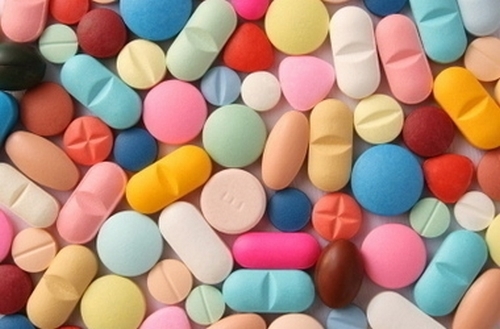Sales of Pharmaceutical products, which may include medicines, or surgical devices, consumables of any form, machines, and equipment used in surgeries is called Pharma Sales. The target audience is doctors of any kind, chemists, and/or purchase in-charge in hospital or pharmacies.
The pharmaceutical sale is very different from regular sales of any kind right from the product to the customer to the process of selling. Of all the sales, Pharmaceutical sale is considered to be one of the most lucrative and high paying jobs and also one of the most challenging jobs requiring a lot of learnings on the salesperson’s part.
Table of Contents
The process of Pharmaceutical sales
Like every sale, there is a buyer and a seller. In this case, the buyer depends on the product of the manufacturer. For discussion’s sake, we will consider all of the buyer kinds.
- Buyer for medicines of any kind – Chemist, Distributor, Hospital Pharmacies
- Buyer for medical devices, instruments, implants – Doctor, purchase officer
Following is the general Process of Pharmaceutical Sales followed by most of the Pharma companies :
1) Targeting :
A proper target is passed on to the sales team which will consist of value business to be gotten from the area. The target is considered after taking into consideration last year’s target, market potential, and industry growth. A proper targeting is necessary for the profitability of the company.
2) Sales Process :
Once the person has the targets, he can then work on his customers and segregate according to the potential of the customers. Then the salesperson arranges visits to the relevant customers. In the case of medicines, the customers would be doctors and chemists while in case of medical devices it would be a doctor himself and purchase in charge.
3) Sales call :
The salesperson visits doctors by taking an appointment. The visit can be carried out as much as necessary. In the case of medicines, the objective of a sales call would be to influence the decision of the doctor and make him the desired brand of medicines. For that, the seas person ensures that there are relevant studies supporting the product.
The studies are discussed with the doctor and few samples of the products are kept with him in order for the doctor to test for himself. In the second visit glitches if any on the doctor’s part is counted with examples and counter studies from the salesperson.
The second visit is the determining visit to convert the doctor. if there are any more doubts in the minds of the doctor, the salespersons visit increase but the objective remains the same that is to convince the doctor to write the desired brand of medicine. Once the doctor is convinced the salesperson then visits the chemist shops to check the availability of the product.
The chemist then gives the requirement for the product to the salesperson who then arrange is it from his own warehouse. On the third visit, the salesperson checked the stock with the chemist. If the stock is unconsumed that means the doctor is not writing the brand in which case the salesperson increases the visit to the doctor with more armamentarium and studies to influence his prescription. Decision influencers may be used in the stage.
Pharmaceutical companies invest a lot of money in gifting the doctors, however, this is not a step which is supported by any medical council all over the world. Gifting, in cash or kind, or any act done to influence the writing of medicines by a doctor, is prohibited and if caught in the process the salesperson will lose his job, the doctor loses his practicing license and the pharmaceutical companies are fined heavily.
If the doctor is convinced, he starts prescribing the product. While the convincing takes place at the clinic, the sale happens at the chemist’s shop. The salesperson keeps on replenishing the stock at the chemist and collects payments. In the case of the Hospital pharmacies, a similar procedure is followed.
In the case of surgical products, the process changes slightly. The pharmaceutical salesperson visits the doctor by taking his appointment. Unlike the sales of medicines, in this case, there is an in-depth discussion of the salesperson and the doctor about the procedure where that particular product is going to be used.
Here the salesperson acts more as a solution provider to the doctor where he educates the doctor about the procedure and where and how his product can be used. The salesperson then asks the doctor for an appointment to shadow him or assist him or observe his surgical technique in Operation Room. Post permission from the doctor, the salesperson visits and observes the techniques of the doctor and then positions his products accordingly.
The sales call in this technique, is not only limited to the OPD visits but also extends to the ORs. The sales person then offers a sample of his product to the doctor for use in OR and assists the doctor in the surgery, if need be. Following that visit, the salesperson then takes a feedback of the product from the doctor and tries to get an order.
If the doctor likes the product, he will place an order with the salesperson and the disease caused if the doctor does not like the product a salesperson continuous his visits clarifying the doubts until the doctor is convinced to buy the product.
In some cases, the salesperson has to visit purchase officers this is true especially in the case of multi-specialty hospitals. The Salesperson, after influencing the doctor in the multispecialty hospital then talks to the purchase officers to place an order. If the doctor is convinced, he places the order with the purchasing officer who in turn places the order with the salesperson and the sale is closed.
In the case of medical equipment, there is an additional step of demonstration wherein the doctor takes a demo of the machine in the surgery if required. After taking the demo it is up to the doctor whether to purchase or not. The salesperson can follow up with the doctor.
3) Collection of payments :
A very important step in pharmaceutical sales is a collection of payment. The payment is collected from the chemist or the doctor whoever the product is billed to. The product pricing can be as small as a $10 a product to $50,000 machine. Depending on the product and the volume of the order, the company offers various payment options to the customers. In the case of implants, the payment is collected from the patients and passed on to the companies.
Challenges in pharmaceutical sales
1) Government intervention
Any and every kind of pharmaceutical product ultimately goes and works in the human body. Because of the sensitivity of the product, the governments have imposed rules to follow before any pharma product is used by a doctor, such as the product should have minimum side effects and should be affordable to the patient.
Negative outcomes, side effects of any kind should be reported to the relevant medical authority immediately, along with their respective pharmaceutical company. It is also necessary that all of the side effects and contraindications of the medicine should be mentioned on the label beforehand. Also, the sale of Pharmaceutical product is limited only to doctors or chemists.
2) Competition
As with every company in the market, competition is a major problem in the pharmaceutical sector. There are numerous companies offering the same product to the doctors at an economical price. Unique products or research molecules are patented by the company and that company becomes only the authorized seller for that particular medicine.
No company can imitate the brand or molecule till the patent is over. Once the patent is over the researching company has to drop its prices hence pharmaceutical companies profit only on the patents of the products. The intense price war with the competition can be very challenging for pharma reps.
3) Sales calling
The Sales calls in the pharmaceutical field can be very difficult compared to any other industry. Sales reps have to wait for hours just to meet the doctor and the long wait results only in minutes of the meeting during which the rep has to convince and convey about the product to the doctor as aggressively as possible. Pharmaceutical sales job can be tough because of the nature of the sales, the product, and the industry.
4) High Targets
Pharmaceutical reps are one of the most overworked people in the industry. High target pressures, nature of the competition, price-wars and the lucrative nature of the product are few of the hurdles in completing the target.
Pharma products are the most profitable products and have the highest profit margins. That is the reason why targets that are given to the sales rep are very high which often results in high attrition rates and frustration on the part of Salespeople. Having said that, Pharma sales jobs pay highest amongst all jobs. A survey found that an average American can earn more than $100,000 from pharma sales and apart from selling skills, there is hardly any requirement of the companies from candidates.
Liked this post? Check out the complete series on Sales


Hi,
Nice article on What is Pharmaceutical Sales? Quite comprehensive and to the point. Keep sharing.